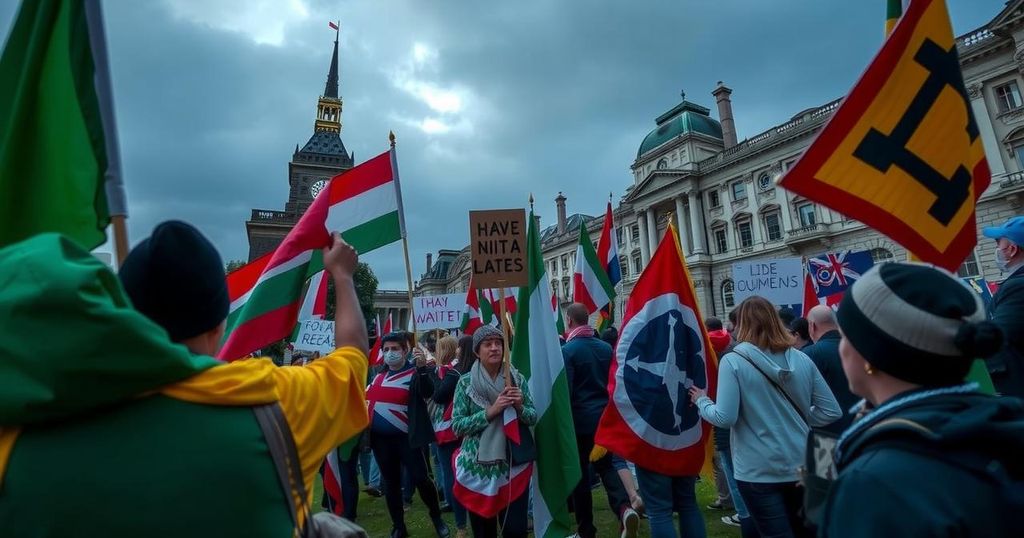At COP29, climate-imperilled nations protested against inadequate financial commitments from wealthier countries, demanding a fairer deal. Cedric Schuster of AOSIS criticized the ongoing negotiations, while developing countries called for increased funding to combat climate crises. Discussions continue amid challenges from both developed and emerging economies, illustrating the complexities of achieving a consensus on climate finance.
During the UN COP29 conference in Azerbaijan, representatives from the world’s most vulnerable nations staged a formal protest, exiting a crucial meeting amid a stalemate regarding a contentious climate finance deal. Leaders from small island nations threatened by sea-level rise and impoverished African nations expressed their frustrations about insufficient financial commitments from wealthier countries to combat climate change. Cedric Schuster, the Samoan chairman of the Alliance of Small Island States (AOSIS), emphasized that they had come to COP29 seeking a fair agreement, feeling that their voices had not been adequately considered.
An unpublished negotiation draft proposes raising annual financial support from wealthy nations to $300 billion by 2035 for poorer countries. However, many developing nations, represented by officials such as Jiwoh Abdulai of Sierra Leone, criticized previous offers of $250 billion as insufficient. The UK Energy Secretary, Ed Miliband, acknowledged that the revised figure represents a notable increase but is still contested by less affluent countries that demand upwards of $500 billion. The ongoing negotiations have left diplomats scrambling to find consensus on climate commitments, with some warning that a poor deal could be detrimental globally.
As discussions continued, the positions of nations appeared divided. The European Union is pushing for annual assessments of progress in reducing reliance on fossil fuels, facing resistance from oil-producing countries keen to maintain their economic interests. Concerns over political feasibility arise, particularly in light of recent elections in the United States and the pushback against environmental initiatives in several Western nations. Activist groups have urged developing nations to remain resolute in their demands, highlighting the necessity for adequate funding to combat rapidly escalating climate-related challenges.
The draft agreement outlines a broader target of $1.3 trillion per year to address climate impacts, primarily anticipated from private sector contributions, although critics argue this may fall short of the rising needs of developing nations. Experts indicate that to genuinely meet these evolving challenges, richer countries should provide at least $390 billion by 2035, reflecting the urgency and scale required to counter climate-related perils.
The ongoing COP29 conference serves as a critical platform for global negotiations addressing climate change, with particular focus on financing mechanisms to aid vulnerable nations affected by environmental crises. As discussions unfold, the push for equitable financial support for developing countries remains central, highlighting a longstanding tension between wealthier nations’ commitments and the actual needs of less affluent regions. The backdrop of this conference is characterized by an urgent call for increased cooperation and financial allocation amidst a global climate emergency that particularly threatens island and impoverished states.
In conclusion, the COP29 conference illustrates the profound challenges faced by climate-threatened nations striving for substantial financial commitments from wealthier countries. The recent protests underscore the urgency of addressing climate financing disparities as vulnerable nations demand a more equitable and inclusive negotiation process. The ongoing negotiations reflect a critical juncture in the global response to climate change, emphasizing the need for collaborative efforts to mitigate its impacts effectively.
Original Source: www.fox28spokane.com






